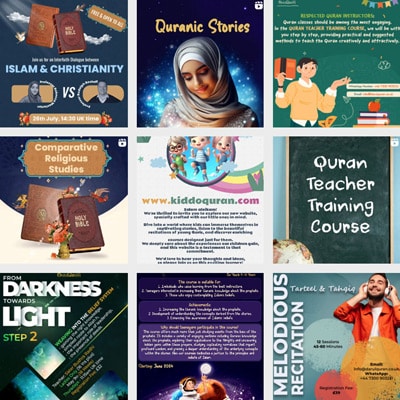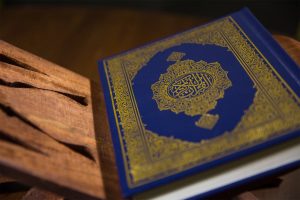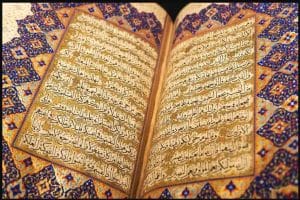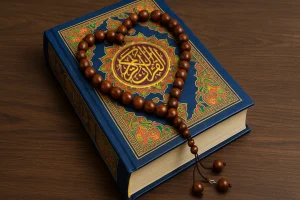The Quran, as the central religious text of Islam, holds immense significance for Muslims worldwide. It is a source of guidance, wisdom, and spiritual nourishment. To understand the Quran’s message and teachings, various methods of interpretation have been developed.
Table of Contents
ToggleTwo commonly used approaches are Tafsir and Translation. While both aim to facilitate comprehension of the Quran, they differ in their scope, purpose, and methodology.
Tafsir
Delving into the Depths Tafsir refers to the detailed and comprehensive interpretation of the Quranic text.
It involves exploring the linguistic, historical, cultural, and contextual aspects of the verses.
Tafsir strives to uncover the deeper meanings, nuances, and intricacies of the Quran, providing insights into the intended messages and wisdom behind the verses. It is typically conducted by Islamic scholars who possess expertise in Arabic language, Quranic studies, and Islamic jurisprudence.
Key Features of Tafsir:
- In-depth Analysis: Tafsir involves a thorough examination of the Quranic verses, considering various linguistic and contextual factors.
- Historical Context: Tafsir takes into account the historical context in which the verses were revealed, shedding light on their relevance and significance at the time.
- Scholarly Interpretation: Tafsir incorporates the interpretations and insights of renowned scholars throughout history, building upon their scholarly contributions.
- Exploring Multiple Perspectives: Different schools of thought within Islam may offer varying interpretations, leading to a rich tapestry of perspectives within the field of Tafsir.
- Interpretive Tools: Tafsir employs various tools such as Arabic lexicons, Hadith (Prophetic traditions), and scholarly commentaries to enhance understanding.
Translation
Translation, on the other hand, focuses on rendering the Quranic text from its original Arabic language into different languages spoken by diverse communities.
It aims to make the Quran accessible to non-Arabic speakers, enabling them to comprehend its message and teachings in their native tongue. Translations strive to convey the meaning of the verses in a clear and faithful manner, ensuring accuracy while considering the linguistic and cultural nuances of the target language.
Key Features of Translation:
- Language Accessibility: Translations make the Quran available to individuals who do not understand Arabic, allowing them to engage with its teachings.
- Faithful Representation: Translations aim to faithfully convey the meaning of the Quranic verses while adapting the language to the target audience’s cultural and linguistic context.
- Simplification: Translations often simplify complex linguistic structures and idiomatic expressions to facilitate understanding for non-native speakers.
- Interpretive Limitations: Translations may not capture the full depth and richness of the original Arabic text, as certain nuances and wordplay can be challenging to convey in different languages.
- Multiple Translations: Different translators may offer varying interpretations and approaches, leading to a diversity of translations available to readers.
Key Differences Between Tafsir and Translation
- Nature and Purpose: Tafsir analyzes Quranic verses to unveil their meanings, wisdom, and guidance, considering language, history, and context. Translation makes the Quran accessible to non-Arabic speakers, conveying the general meaning to a wider audience. Tafsir explores, while translation bridges languages.
- Depth of Examination: Tafsir meticulously examines Quranic verses, considering language, rhetoric, and history. It uncovers layers of interpretation, providing a comprehensive understanding of the divine message while translation aims to convey the meaning of the Quranic verses, it may not capture the intricacies and finer details present in the original Arabic text. Translations often simplify complex structures and idiomatic expressions, prioritizing clarity and accessibility for non-Arabic speakers.
- Scholarly Expertise: Tafsir is done by Islamic scholars who are experts in Arabic language , Quranic studies, and Islamic jurisprudence. They use their knowledge to analyze the text using interpretive tools, historical context, and scholarly commentaries. Translations are carried out by individuals proficient in both the Arabic language and the target language. While they may have a solid understanding of the Quran, their expertise may not encompass the same depth as that of scholars specializing in Tafsir.
Tafsir and translation are two distinct yet complementary approaches to understanding the Quran.
Tafsir provides a comprehensive analysis of the Quranic text, delving into its deeper meanings, while translation bridges the language gap, making the Quran accessible to non-Arabic speakers.
Both methods play crucial roles in enabling individuals to engage with the Quran’s teachings, fostering a deeper understanding and connection with the divine message.
It is through these approaches that Muslims and non-Muslims alike can explore the profound wisdom and guidance encapsulated within the Holy Quran.
If you’re interested in delving into the meaning of Quranic verses through translation, DarulQuran Academy offers a specialized course called “Learning Quran Translation .” This course is designed to help you achieve your goal of understanding the Quran’s message
. For those seeking a deeper level of comprehension, we also offer a course on Quranic Exegesis (Tafsir) , where you’ll go beyond simple translation and embark on a journey to find meaningful answers and unravel the deeper layers of the Quranic text.
In addition to the aforementioned courses in the DarulQuran academy, there is another course that holds immense value for those interested in both translation and Tafsir: learning the language of the Quran, Arabic language .
Join us in this fulfilling endeavor to gain a richer understanding of the Quran.

















